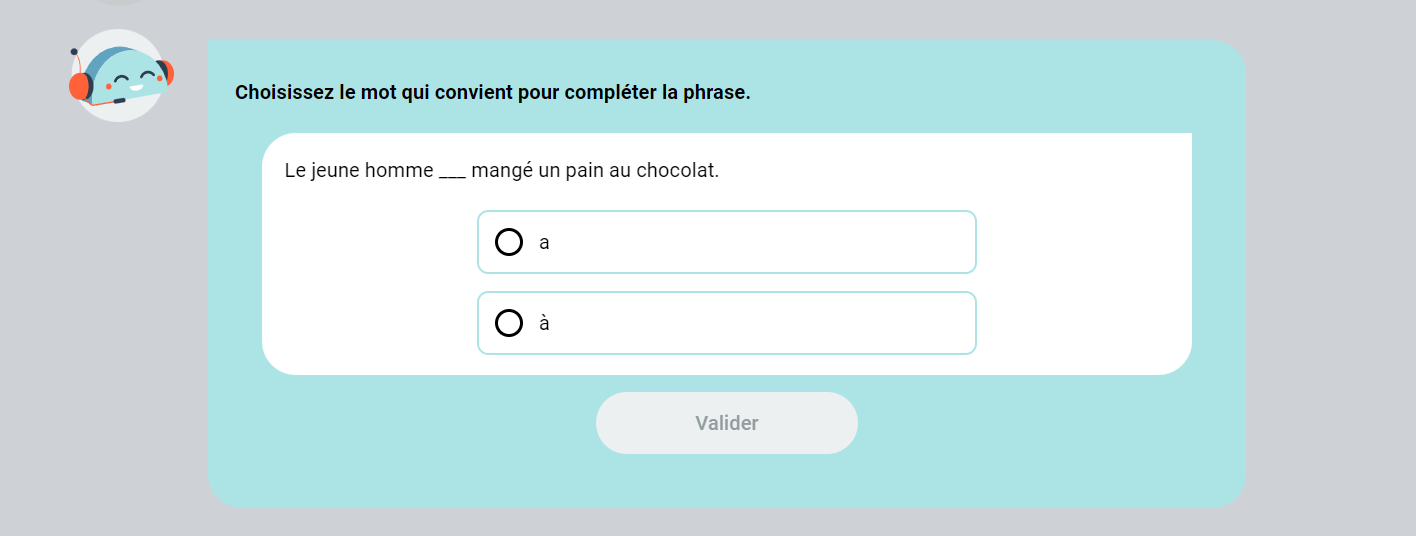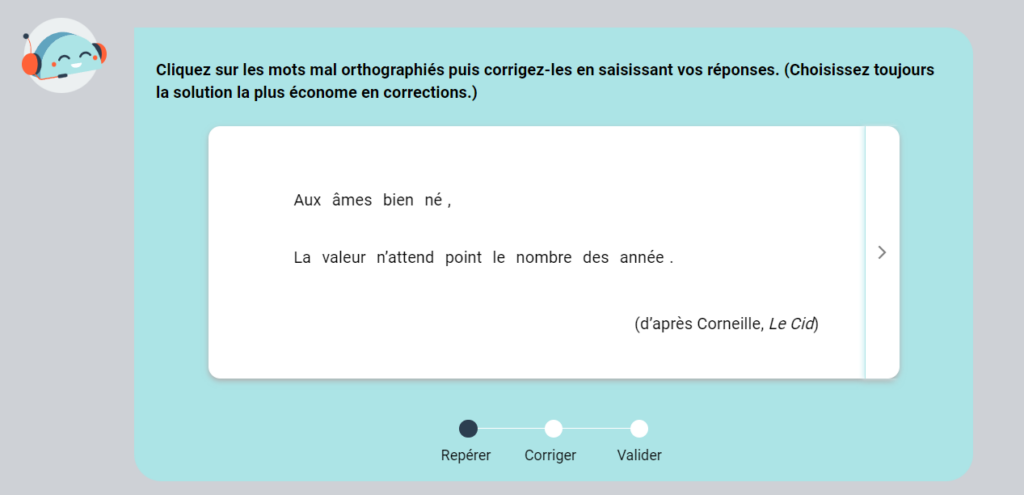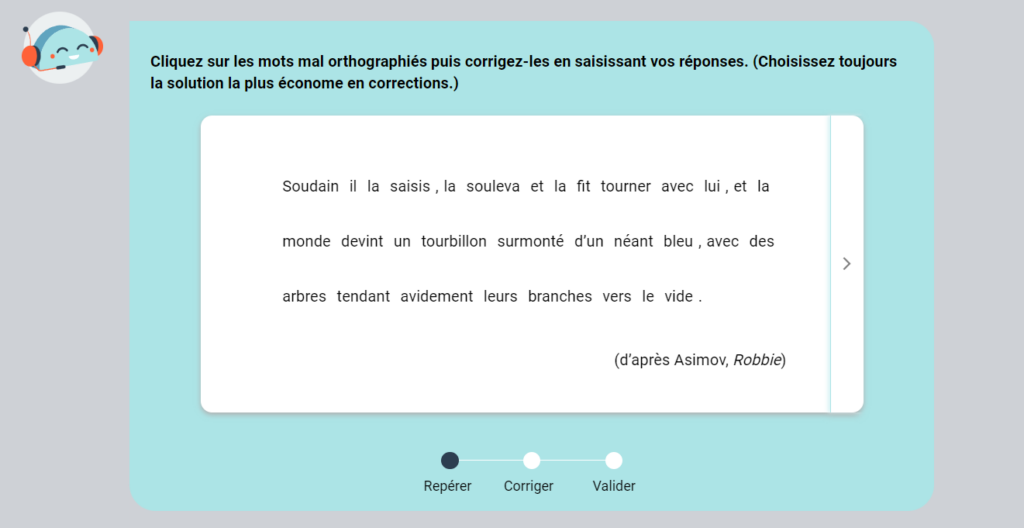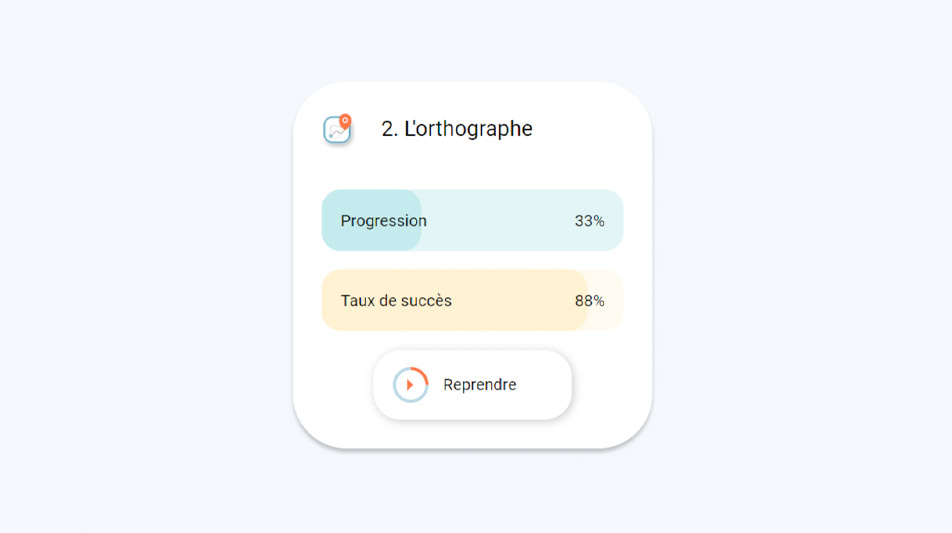The intention of the Orthographe module is to automate the use of essential French spelling. The module includes training:
- on grammatical homophones

- on the determiner-noun-adjective agreement

- and on subject-verb agreement.

It confronts students with texts of various language levels. The goal is first to transform implicit knowledge into explicit knowledge, and then to automate it (to make the use of the language more intuitive). We focus mainly on prototypical instances, to move only in the most advanced activities towards the peripheral instances.
In the module, the acquisition of each skill (objective) thus involves the implementation of activities of two levels of difficulty, one mobilizing the acquisitions in an explanation process, and the second truly bringing into play the automation of knowledge in a resolution of questions without an explanation procedure and by recourse to intuition. By analogy or family resemblance, the student is finally led to intuitively apply his knowledge to peripheral cases from the mastered cases, the AI algorithms ensuring that the movement of prototypical instances to peripheral instances only takes place once the first have been completely mastered.
Thus designed, this module aims to bring out the rules inductively. Like mathematical reasoning, the student reconstructs spelling conventions by analogy.
Adaptiv’Langue: Alda Mari, CNRS-Institut Jean Nicod ENS (EvidenceB)
Adaptiv’Langue Plus: Pascal Amsili; CNRS-ENS-Paris 3; Lisa Brunetti, CNRS- Paris-Diderot University; Carla Soares-Jesel, CNRS-Université Paris-Diderot; Marie Candito, CNRS-Université Paris-Diderot; Lucie Barque, CNRS-Université Paris-Diderot (EvidenceB)
Also read:

